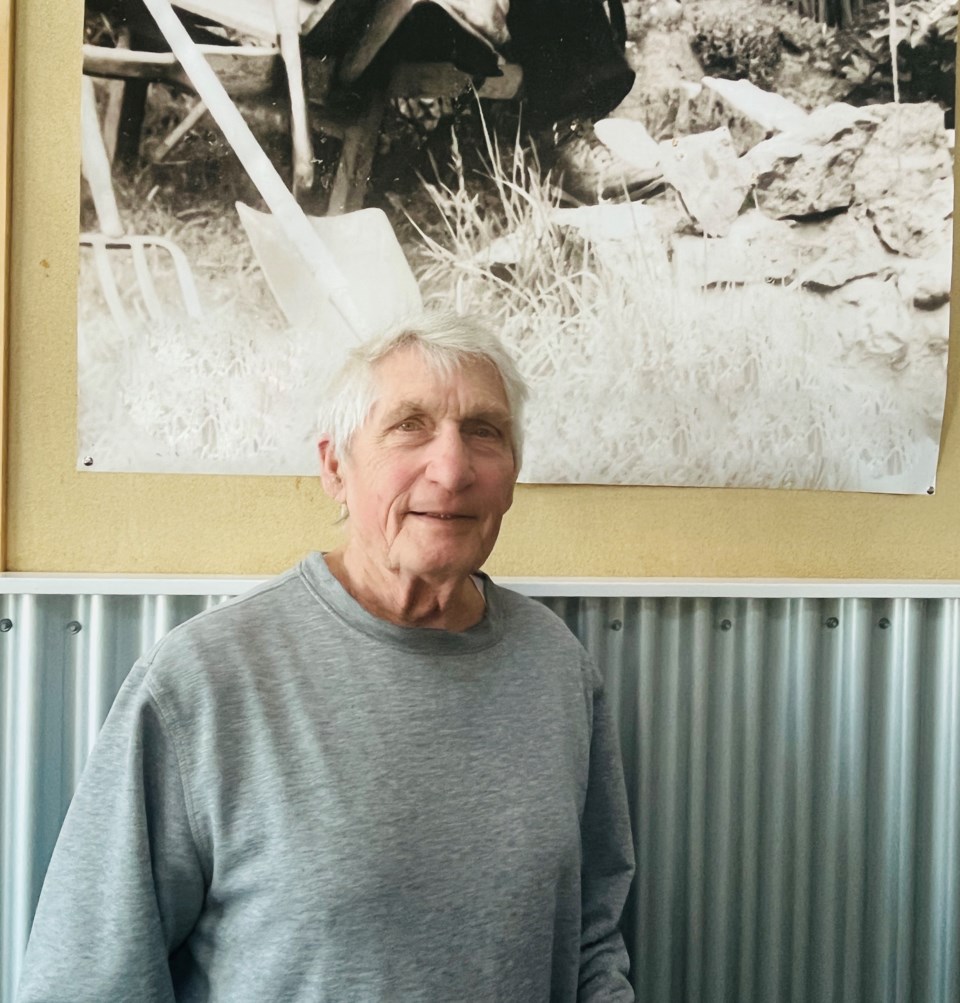For someone who has dealt with death up close, Dr. Robert Crossland has a mischievous sense of humour and keen ability to recollect his time as a coroner in the qathet region, from 1981 to 1993.
Crossland was on hand following tragic incidents or accidents, and in charge of retrieving the body. He soon discovered his job also involved unusual challenges and adventures, such as wading into deep water in the harbour as part of a murder investigation or climbing deep into the backwoods to identify a person in a logging accident.
Death Calls: A Coroner's Memoir, a new book by Crossland, dives into more than 20 years of investigations and reports on more than 600 sudden, unexpected deaths in the qathet community and the oceans, lakes, forests and mountains which surround it. He will be at Powell River Public Library to give a presentation and talk about his book at 2 pm on Saturday, May 11.
"In each case, I had to establish not only who had died but when, where, how and why," said Crossland, in an interview with the Peak. "Powell River was a quiet community back then and the only big incident I can think of was an attempted murder at the mill."
In addition to being coroner, Crossland was also a physician and member of the community. He often found himself personally connected with those who had died.
"We had a couple of scuba diving incidents," said Crossland. "This area was being promoted as a recreational scuba dive area at the time. We had a recreational death and an occupational-related death."
Back then a person had to be certified only once to dive. These two scuba incidents led to an inquest, which led to more rigorous rules for certification in BC.
Inquests led to change
Crossland said he was a part of six inquiries, many of them to do with logging, which led to positive changes in work practices and standards. He said that although a coroner's recommendations after an inquest are usually taken seriously, in some cases they can be ignored, depending on who is involved.
"If there's a big public interest, something important, something that needs to be addressed publicly, an inquest is held," said Crossland. "We had some logging accidents and when we started examining it, we discovered no end of safety problems."
He added that the findings forced logging companies to change practices and led to workers receiving compensation.
Crossland said the public doesn't have a great understanding of what a coroner actually does, and that's why he is giving his talk.
"What we see on TV,” he explained, “is usually the medical examiner system from the United States."
When there is a sudden unexpected death, he said coroners must ascertain that there is a body, if possible, and then find out who the person is, when they died, where, how and why.
"Then we make recommendations to prevent future deaths,” he added. "The coroner is responsible for recovering the body, which meant, in my case, many times going to see where a body was enmeshed in tree trunks and branches at the edge of a flowing river; and I had to get into the river and float the body to a police boat."
As horrifying as that scene may be, Crossland said around 60 to 70 per cent of cases he encountered were considered natural deaths. According to the BC Coroners Service, a natural death is defined as primarily resulting from a disease of the body and not resulting secondarily from injuries or abnormal environmental factors.
It might not be surprising to people that in most provinces and jurisdictions, coroners are trained doctors or pathologists, but what might be surprising is that, in BC, 90 per cent of coroners are lay people.
"I was very unusual because I was a doctor and there were maybe two other doctors in all of BC who were coroners and the rest lay people," said Crossland.
Unusual encounters
Crossland said at the time he was coroner there were a couple shocking murder investigations, and one of them would be categorized as a hate crime today. He has also encountered plane crashes, suicides, accidents and some complicated, startling, unforeseen and astonishing circumstances and findings.
Although writing the book was cathartic, he said he has never been haunted by memories or incidents he encountered on the job.
"This job took me to unexpected places; I met many interesting people whom I am still friends with to this day," said Crossland
"That's what I liked most, is meeting people, learning and talking to people."
Join the Peak's email list for the top headlines right in your inbox Monday to Friday.




